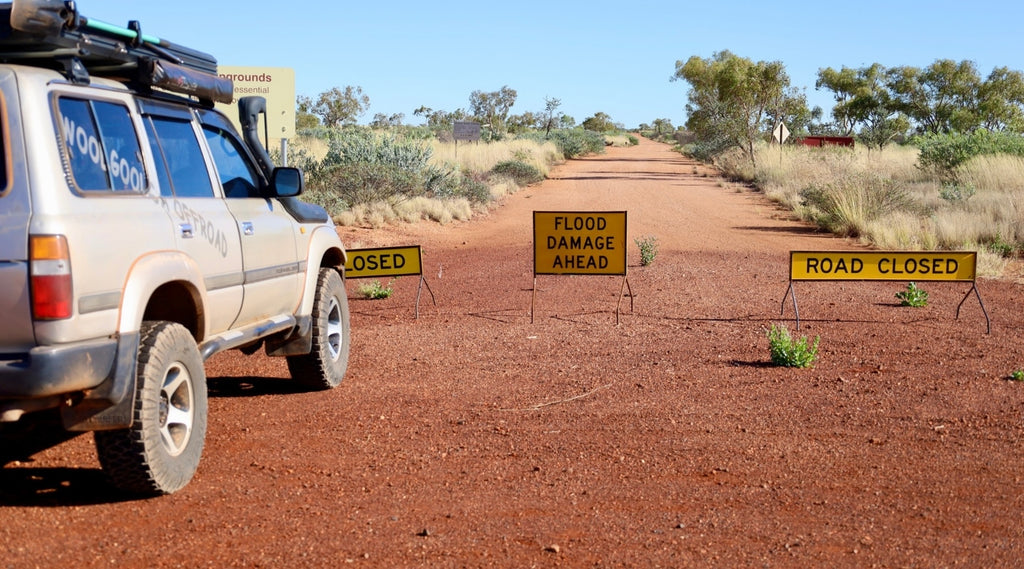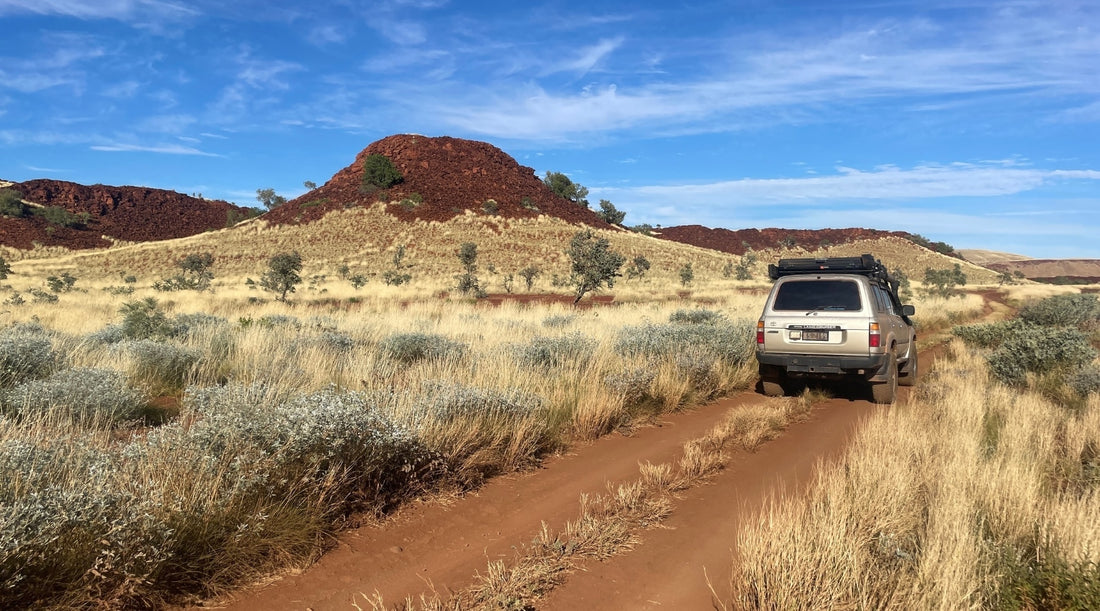Words and pics by Kev Smith - Woolgoolga Offroad - North Storm® Ambassador
I’m not sure how I ended up at Pannawonica, in WA’s mid-north, but I know I was on my way into the vast and often underrated Pilbara area.
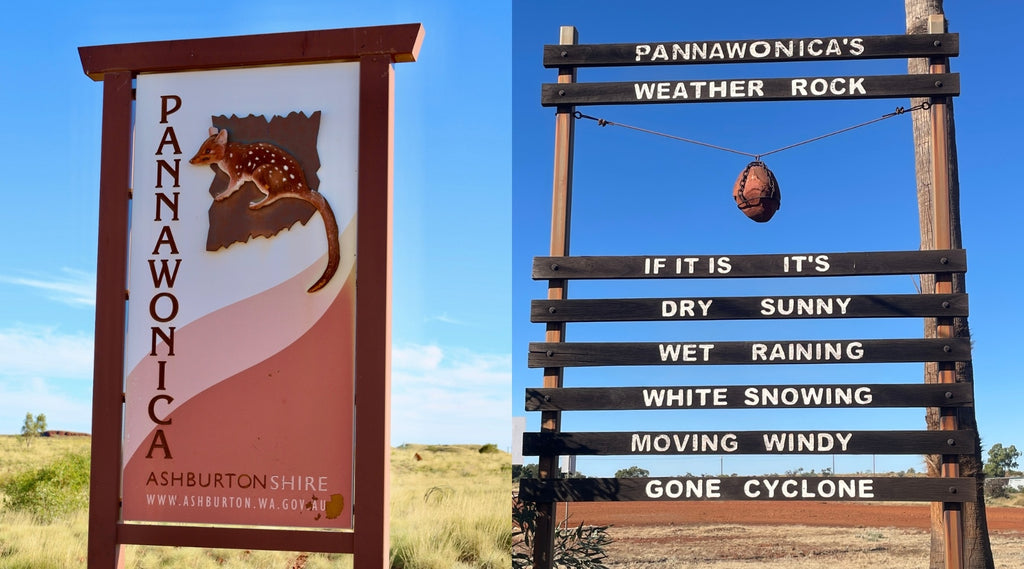
After fuelling up I did the usual drive around town to find out what goes on but soon realised it was a mining town.
Owned by Rio Tinto, it is regarded as a ‘closed’ town where it services the local mines the town does sell fuel to the passing public.
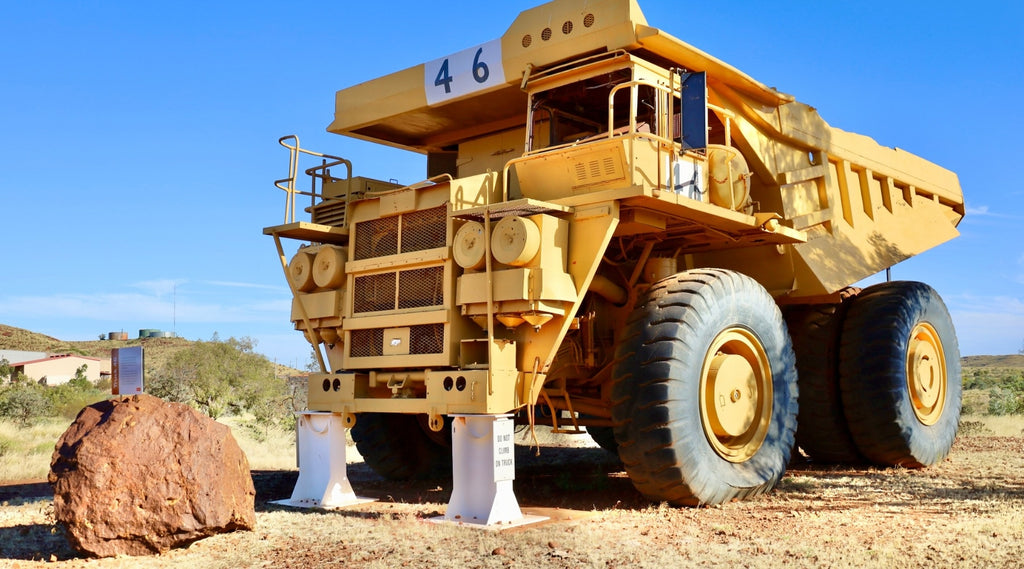
Several large iron ore mines operate 50km out of town and the majority of the ore is transported by rail to Cape Lambert, near Wickham some 200km away.
Permission was given to drill in 1948 and 20 years later the world’s biggest ore contract was signed in Japan, and for the next 76 years the ore continues to be processed from the area.
Even though the town has had a re-firb, it still does have a 70’s theme.
Pannawonica Hill is a popular spot for locals, and it’s claimed that the town’s name came from here.
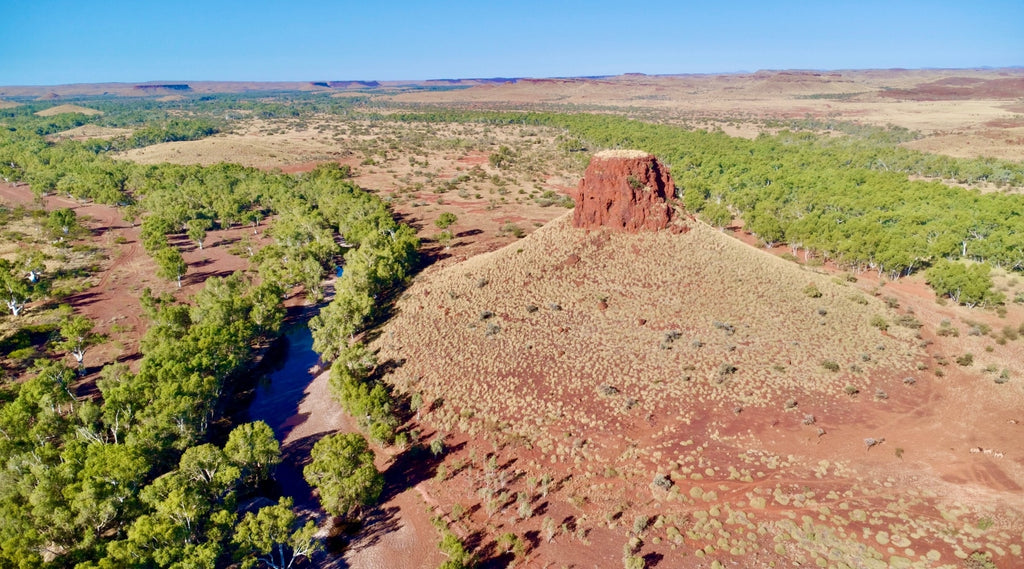
The word ‘Pannawonica’ means ‘the hill that came from the sea.’
Local legend says that two tribes were arguing for the rights to the hill when it was beside the ocean, but the sea spirit saw this and dragged the hill where it is today.
The path that it was dragged on became the Robe River.
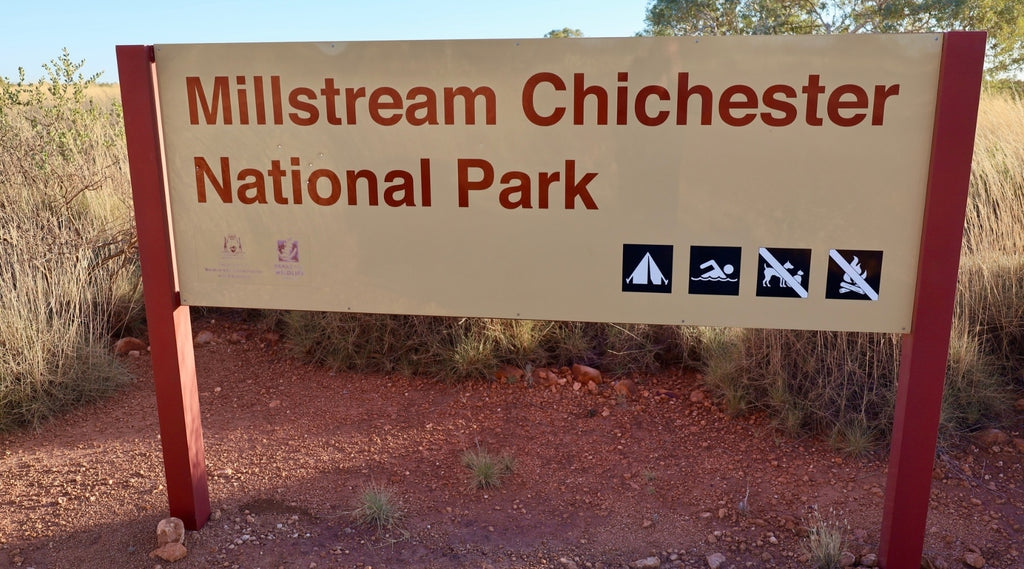
Heading near due east, my next stop was Millstream NP about 130km away through the Pilbara region.
The roads were in pretty good condition, probably due to the mines being in the area.
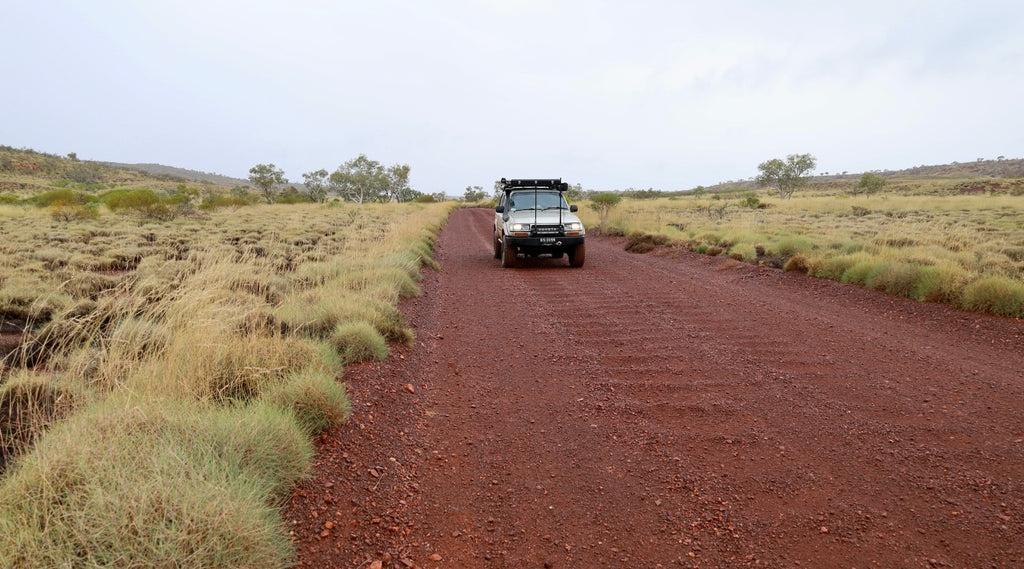
It was about halfway to Millstream when I encountered one of the massive ore trains heading to Dampier on the coast.
Now if you were lucky like me to get to the crossing to see the entire length of the train, they are a sight to see!
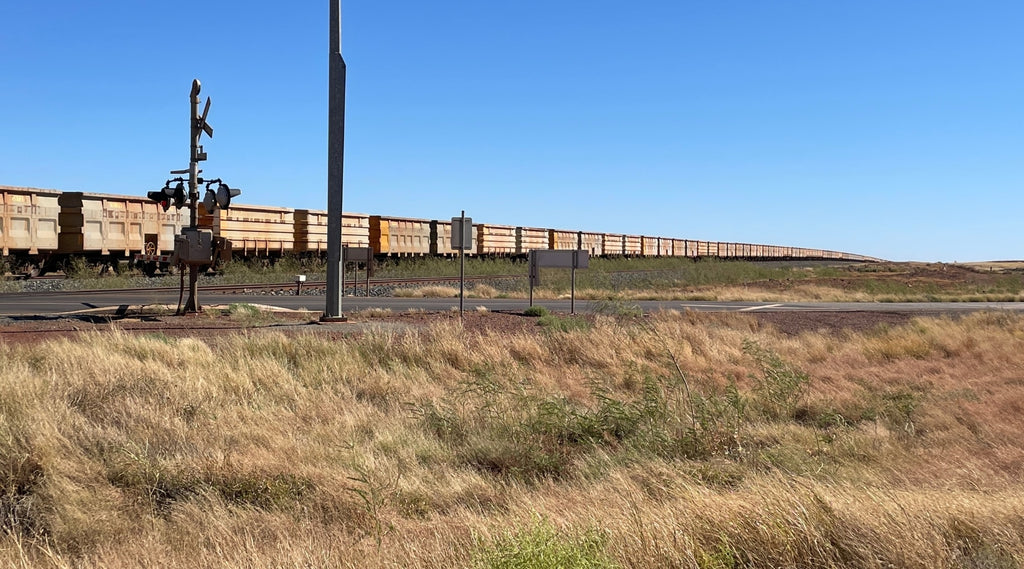
Just imagine a train powered by 3 massive engines (two up front and one in the middle) hauling around 240 carts of iron ore.
All this weighing in at an impressive 30,000 tons and nearly 3km long. Each train has a turnaround time of 28 hours, and they run 24 hours a day.
Trying to count all the rail carts will have your eyes spinning and going dizzy.
Now it was another 60km to the entry to Millstream Chichester National Park where I had booked a site at Stargazers campground.

These are pretty basic sites but a good base to explore this area of the park.
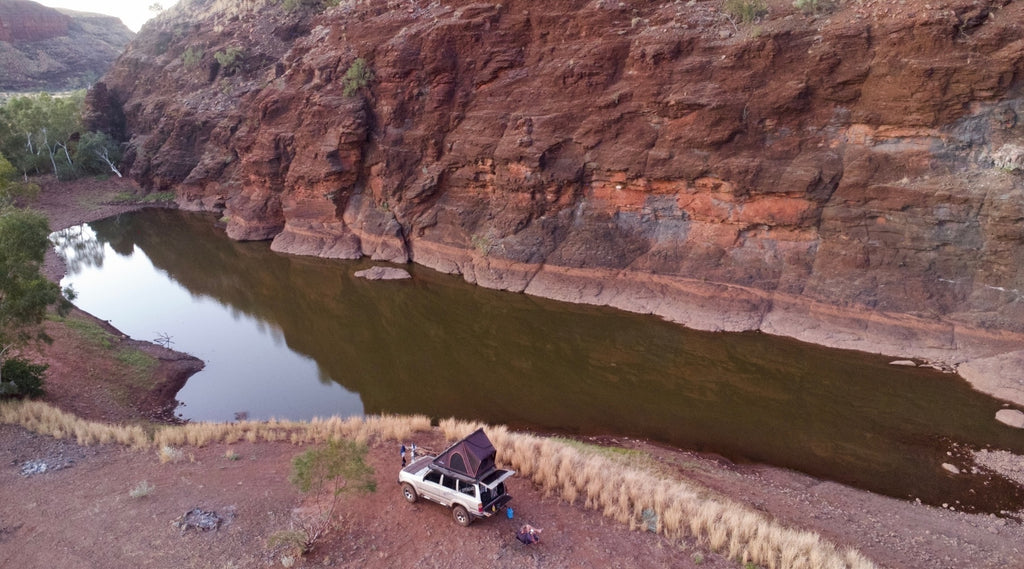

After parking up, it’s a short stroll to Millstream House and to learn about the Ngarluma and Yindjibarndi people’s indigenous history living throughout this area.
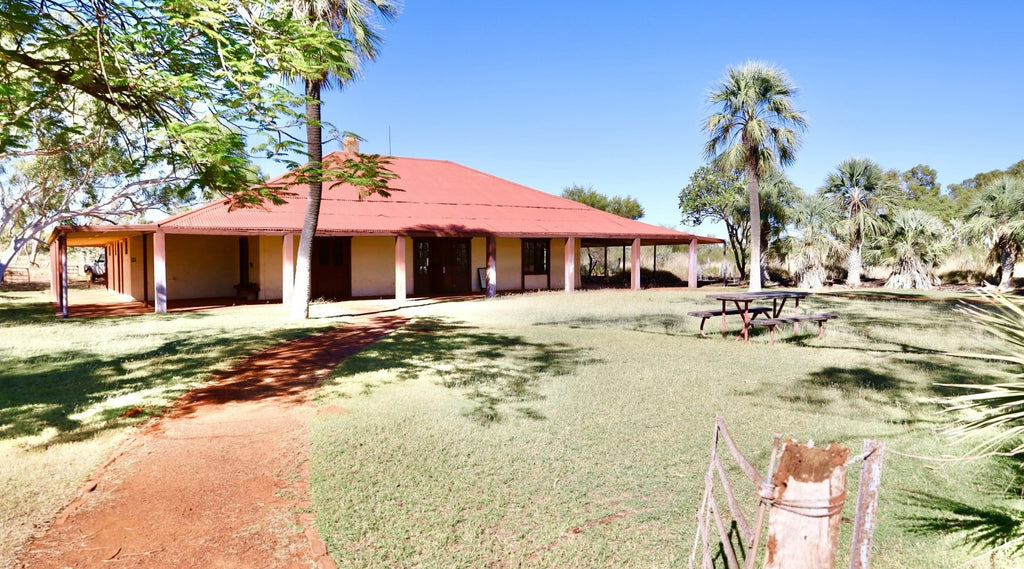
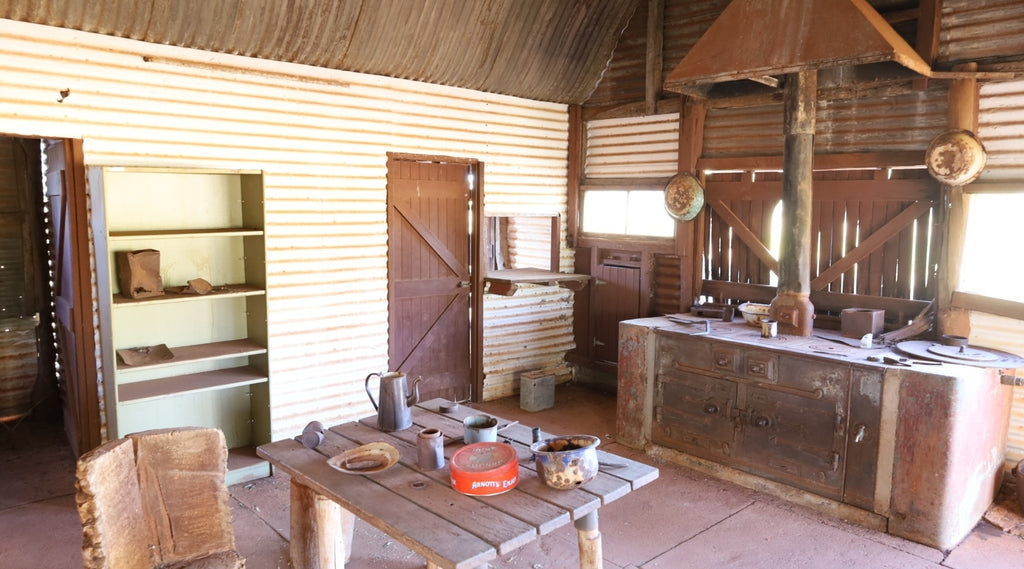
Millstream pastoral station was set up in the 1800’s but the current house was built in 1901, it highlights the trials and tribulations of life to the present.

Out back there are old bore drilling rigs and other outdoor tools.
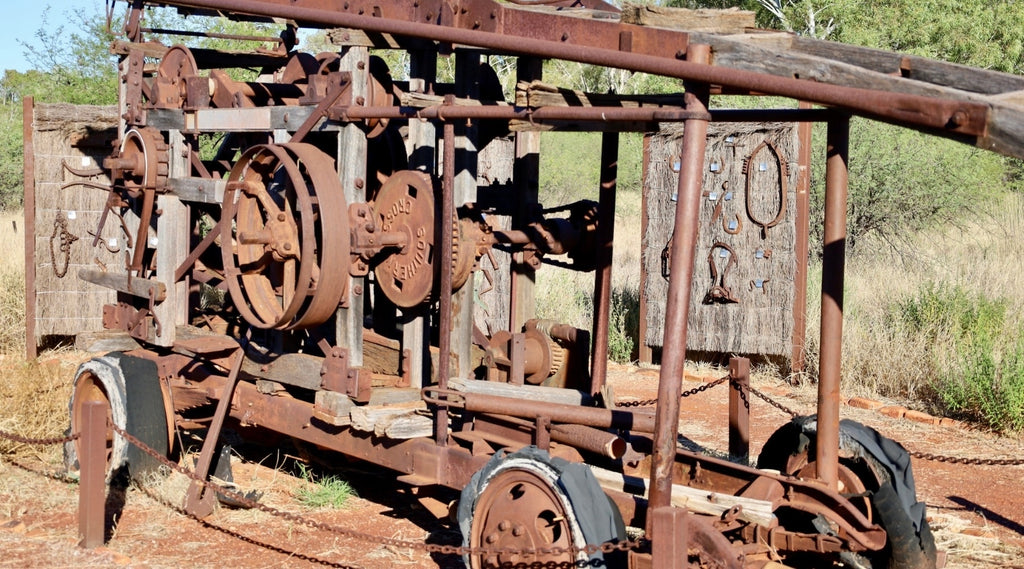
For the walkers there’s the wetland walk and the longer Warrungunha Trail out through grasslands to a cliff lookout.
Not far from Stargazers Camp, is Deep Reach pool which is a long waterhole where you can swim, kayak or relax.
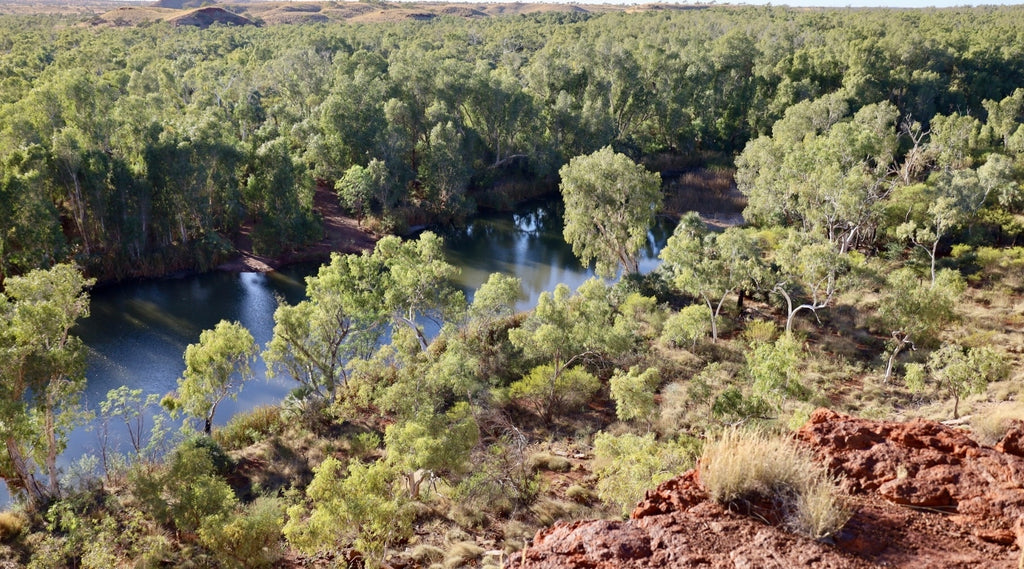
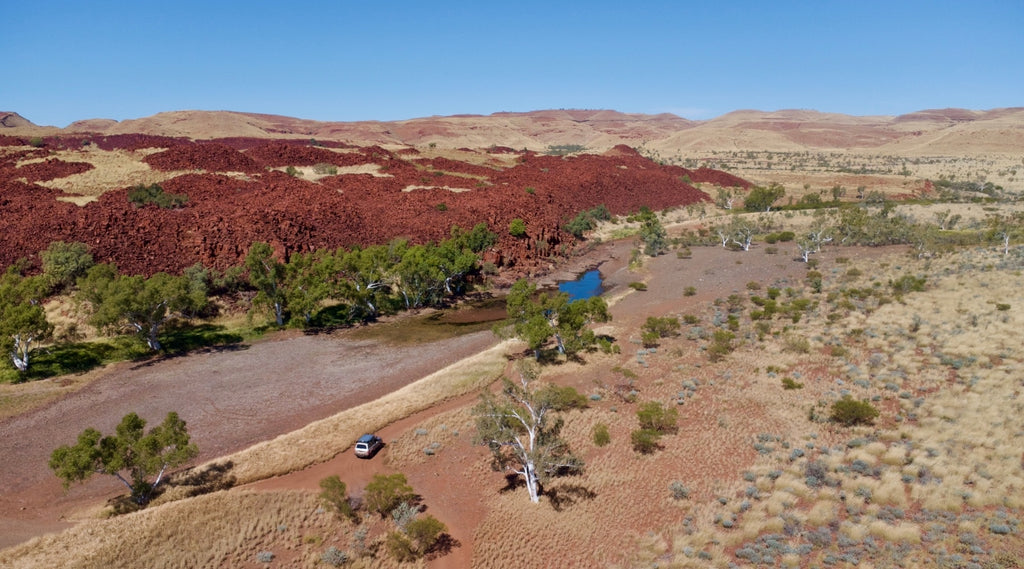
The Yinjibarndi people used the waterhole and its home of Barrimurdi, the Warlu, or serpent that once lived here.
With this being a permanent water source, it’s the perfect place to spot birds, kangaroos, Pilbara dragons, goannas and snakes.
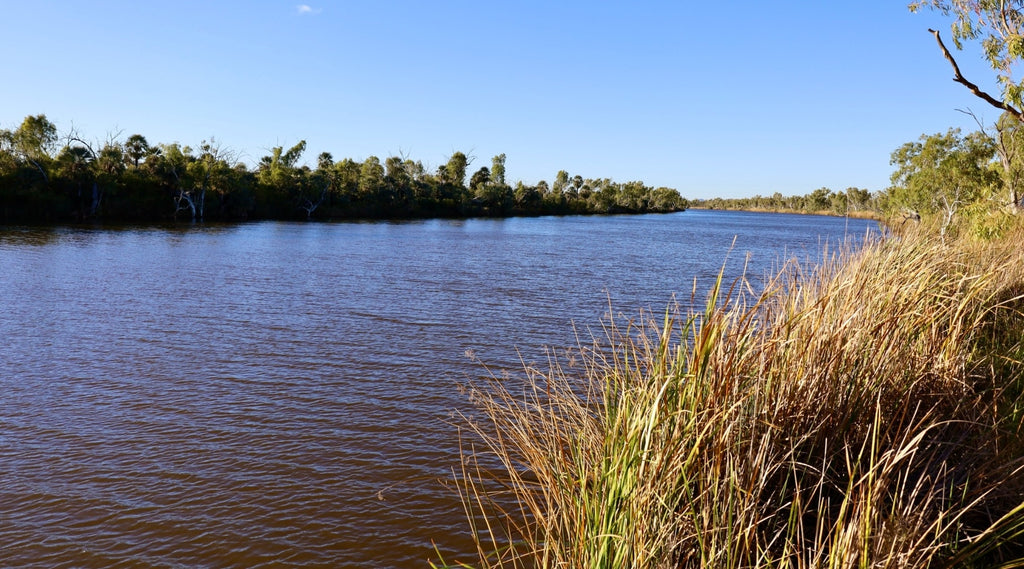
Leaving Millstream out to the Roebourne - Wittenoom Road, I headed to what I was told was a very special place, Python Pool.
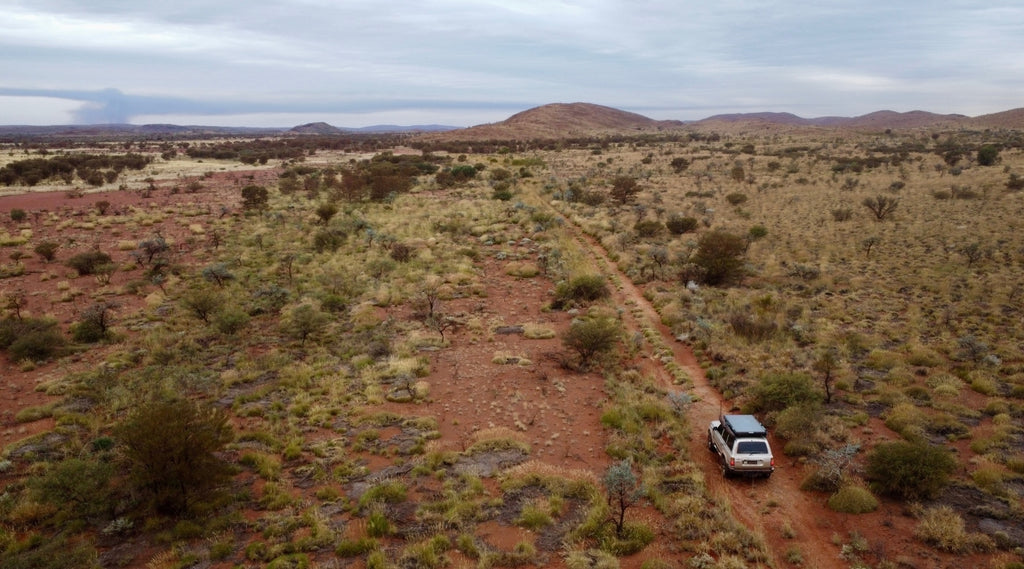
Here during the wet season, water tumbles from the rocks above, worn away over millions of years leaving a near-permanent waterhole year round.
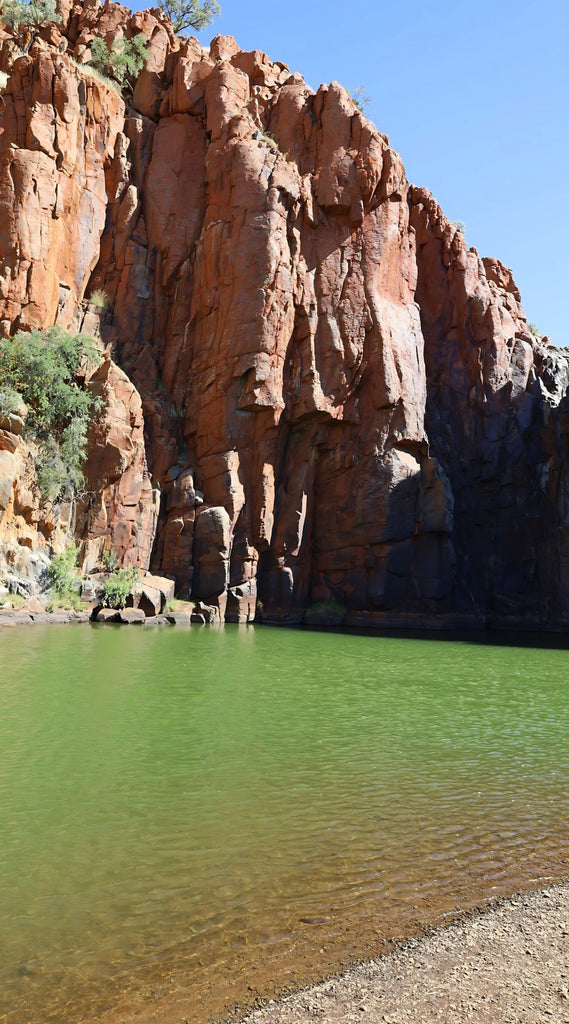
It’s a magical place to spend some time out of the blazing heat.
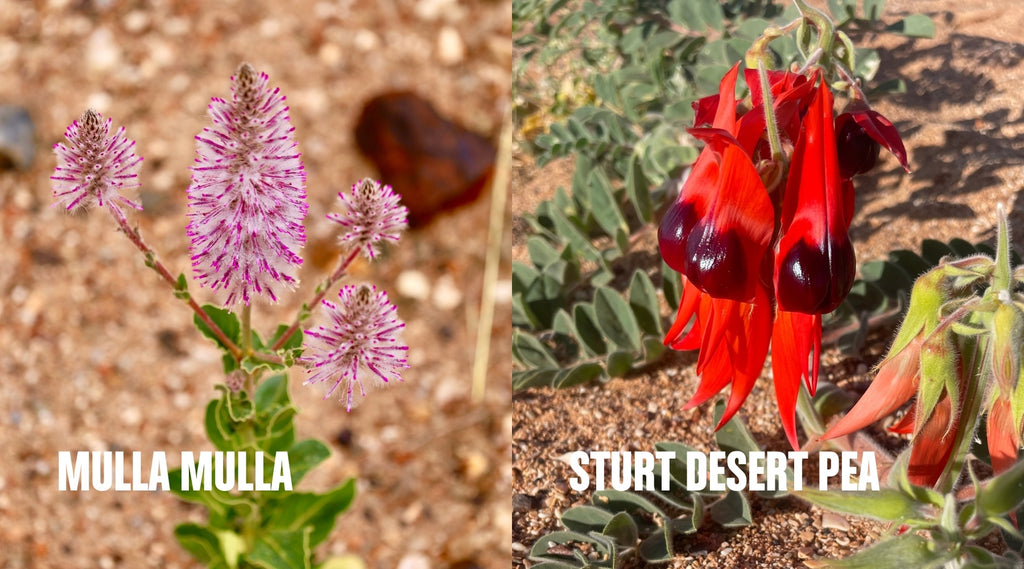
For the history buffs and hikers, just nearby there’s the old Cameleers track linking Python Pool across to Mt Herbert and the water hole, McKenzie Springs.
A historical 8km return trail follows the path that these pioneers took, plus hikers can still see some of the first camel-emblazed markers.
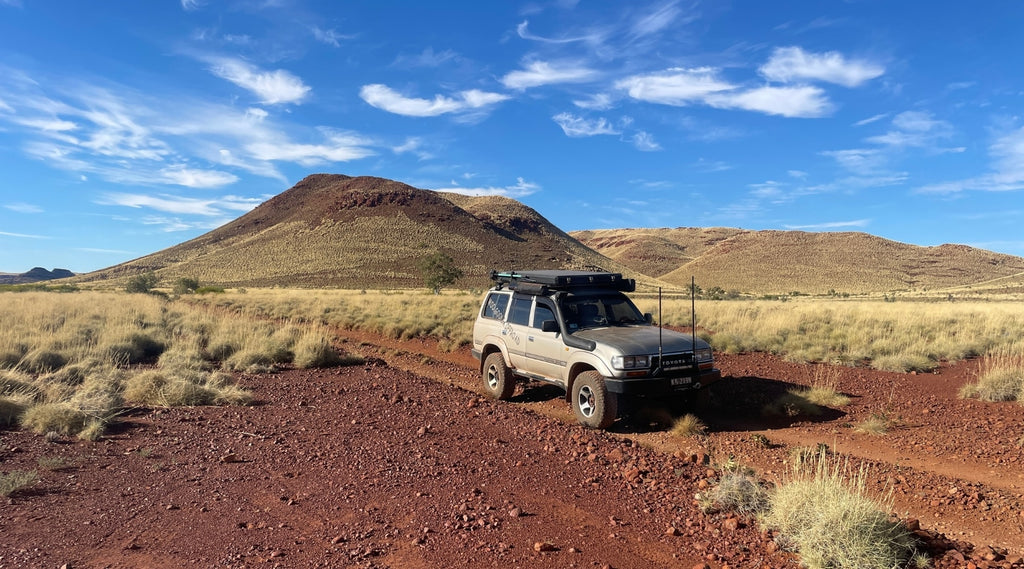
One of my goals was to head out to the remote George River campground and explore the isolated outer reaches of Millstream.
The turn-off to George’s is signposted as a simple remote warning sign, and from here it took nearly 2 hours to reach camp just 10km away.
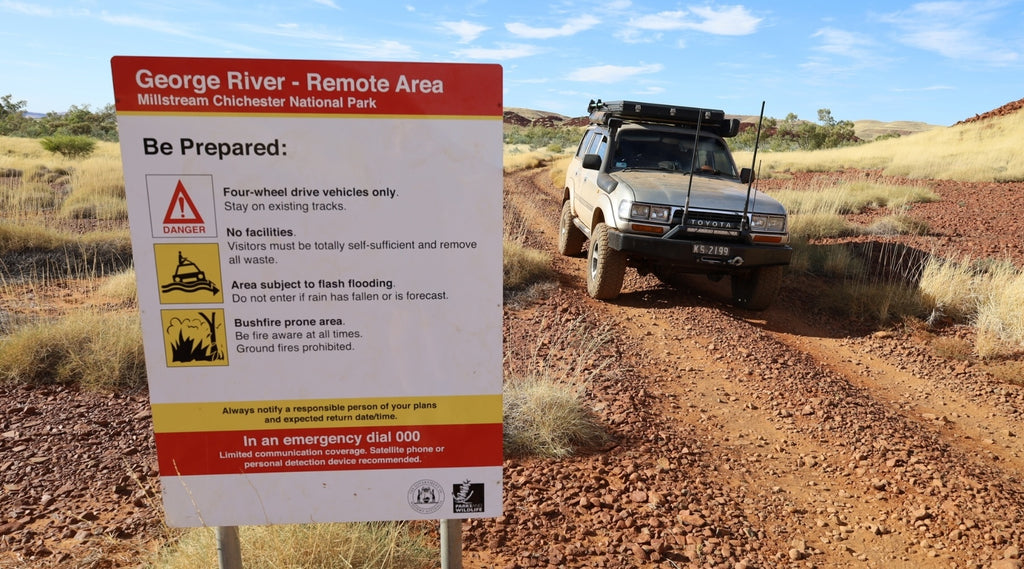
It’s a pretty rough track as it heads into the remote outer reaches, passing old waterholes and through tree-lined dry creek beds.
Heading across the last spinifex plain, I was doubting the magic that I heard about Georges.
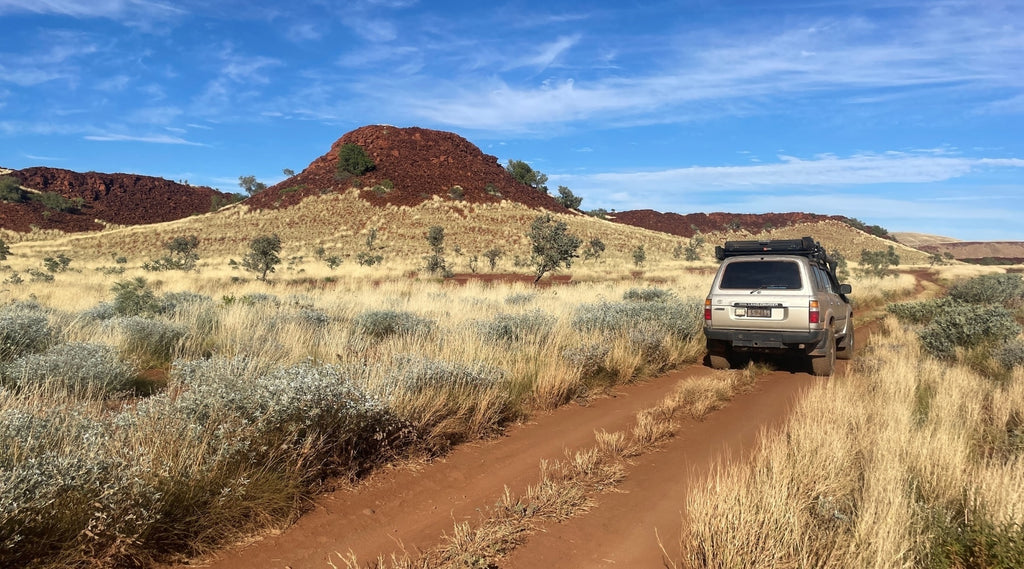
But when the track swung into a gorge where there was a huge freshwater pool below towering cliffs, I tried hard to swallow the lump in my throat that this beautiful place had shown me.
With no one else around I picked the prime spot and just stood there, looking up at the red ochre cliffs in amazement, and as the afternoon sun sunk below the plateau the whole sky turned a mix of soft pinks and a hazy purple.
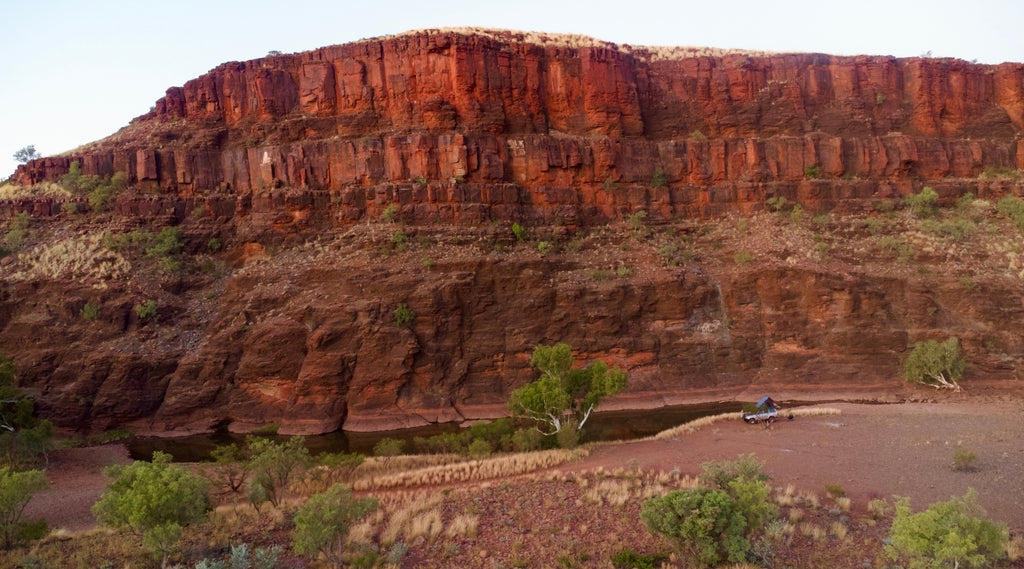
The morning light was just as spectacular as the Pilbara landscape.
In the golden hour where the yellow Spinifex grass lit up with the morning glow.
Georges is a special place that can’t be explained too easily, it’s calming yet it feels like there’s a presence.
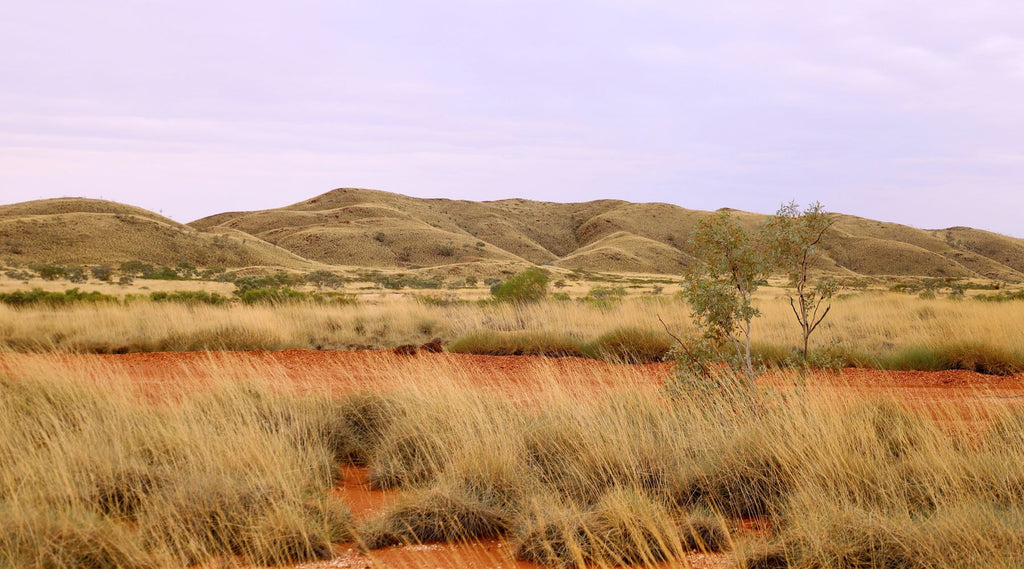
I was in Millstream in winter where the days were warm and nights cool, but during summer this area would be unbearable, plus the pools would be overgrown with algae and stagnant water.
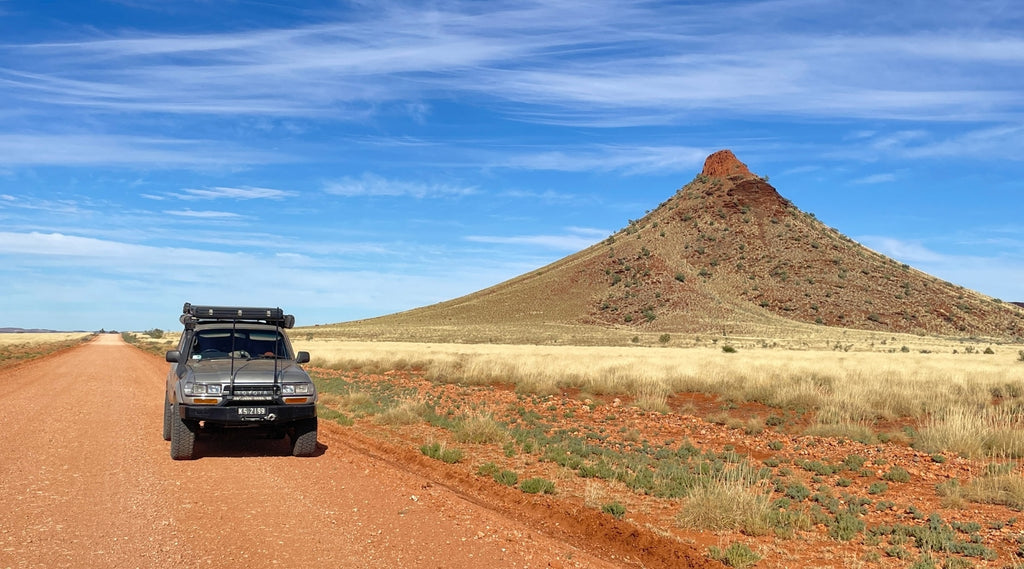
Unlike the main camp areas, George River camp is free, BUT access is 4wd only into this remote area.
There’s no phone service, no bins, nothing - just peace with the Pilbara and being on country.
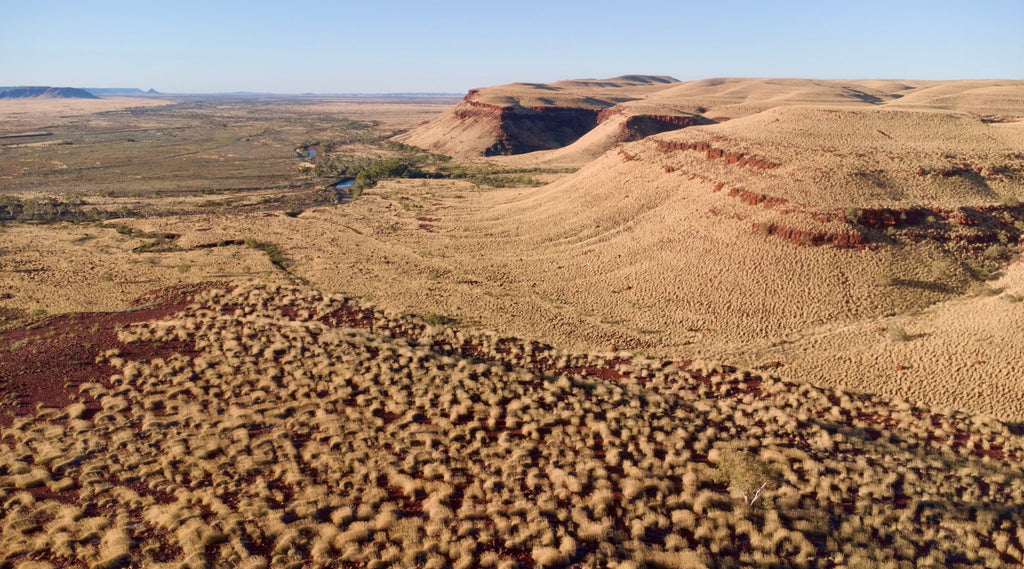
My time through Millstream had come to an end after experiencing the stunning remote Georges area.
After making my way back out to the Roebourne - Wittenoom Road it was a good solid 2-hour trip back out to Karratha.
Millstream might only be small in nature tucked away in the massive Pilbara region.
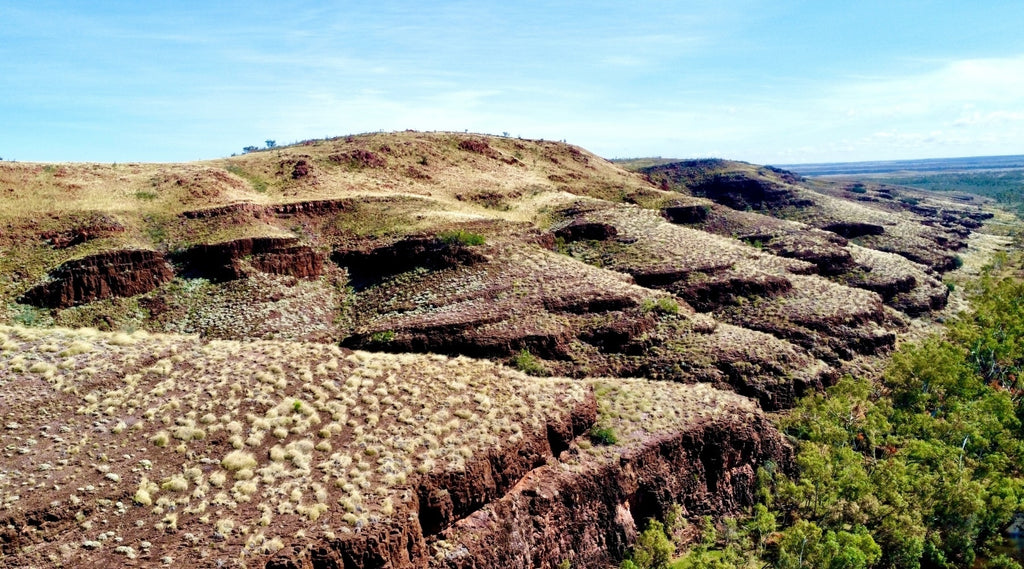
But it took me by surprise packing a punch with its history, cultural heritage and the absolutely stunning Pilbara landscape found nowhere else on earth.
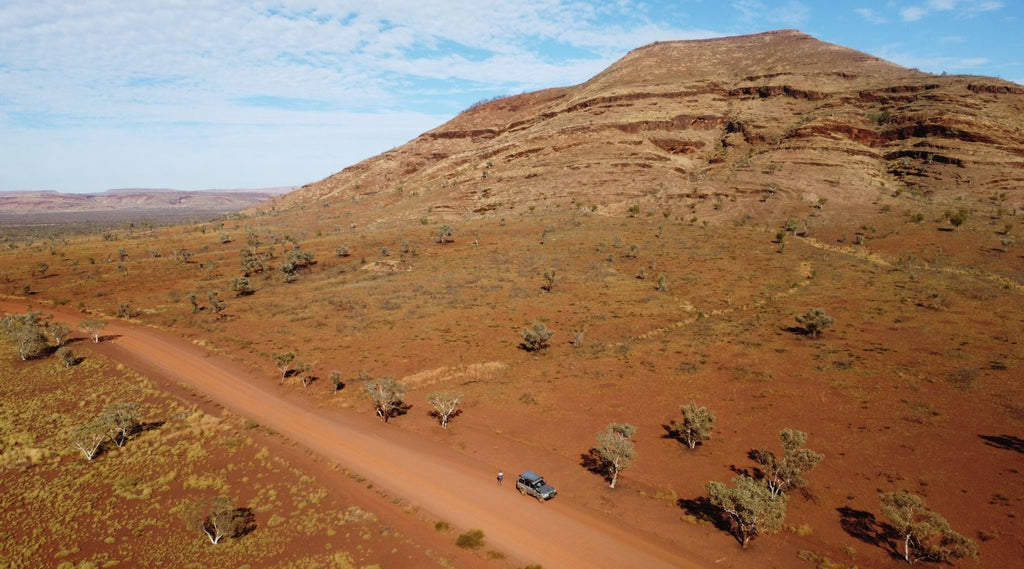
WHERE IS IT?
An hour east of Karratha is Millstream National Park in the beautiful yet vast Pilbara region of Western Australia.
What seems to be a speck in the Pilbara’s 17,000,000-hectare region, Millstream holds its own where visitors head to explore its surrounding area.
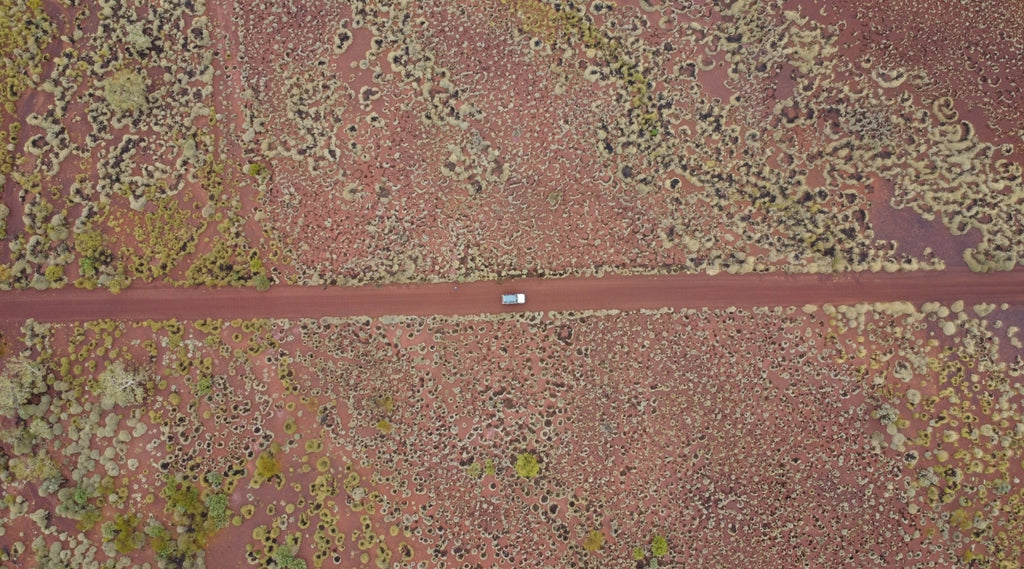
WHAT TO SEE?
What seems like an oasis in the desert, Millstream is a go-to area while exploring the Pilbara with its history, cool waterholes, walking trails and remote camping.
Millstream House has an array of literature, Aboriginal artefacts, pastoral relics and more.
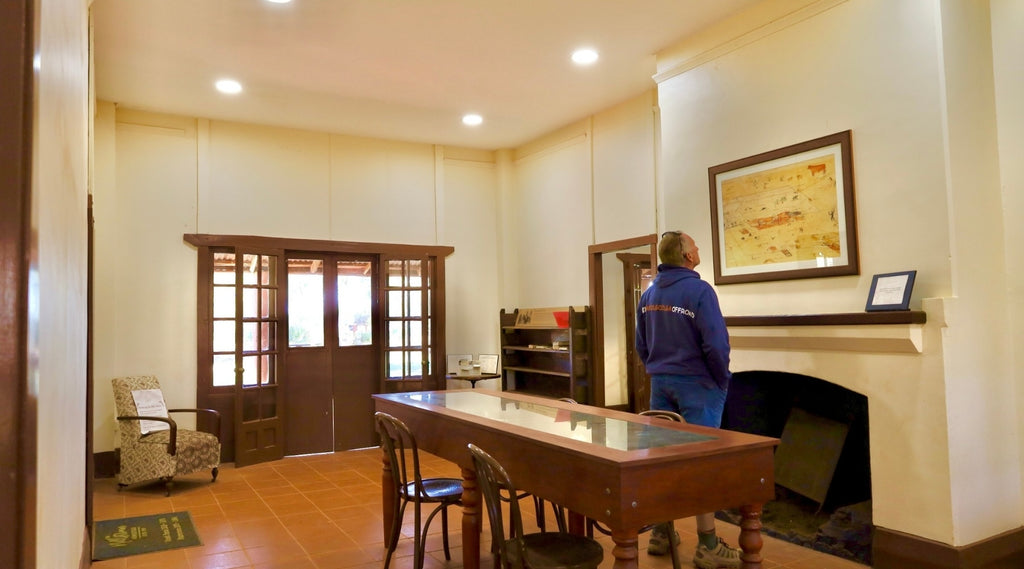
OTHER IMPORTANT FACTS
A 4WD is necessary to explore the whole of Millstream, while there is no extreme offroad sections, the roads and tracks surrounding Millstream are not sealed.
Summertime temps are pretty much unbearable so the best months to head to Millstream are May through to August.
For the adventurous heading to places like the Georges River remote camp area, the trails are unmaintained and change each year after the wet season.
Other roads around the park are used by mining companies and are generally in pretty good condition.
As always most info can be found on Parks WA website at https://exploreparks.dbca.wa.gov.au/park/millstream-chichester-national-park
